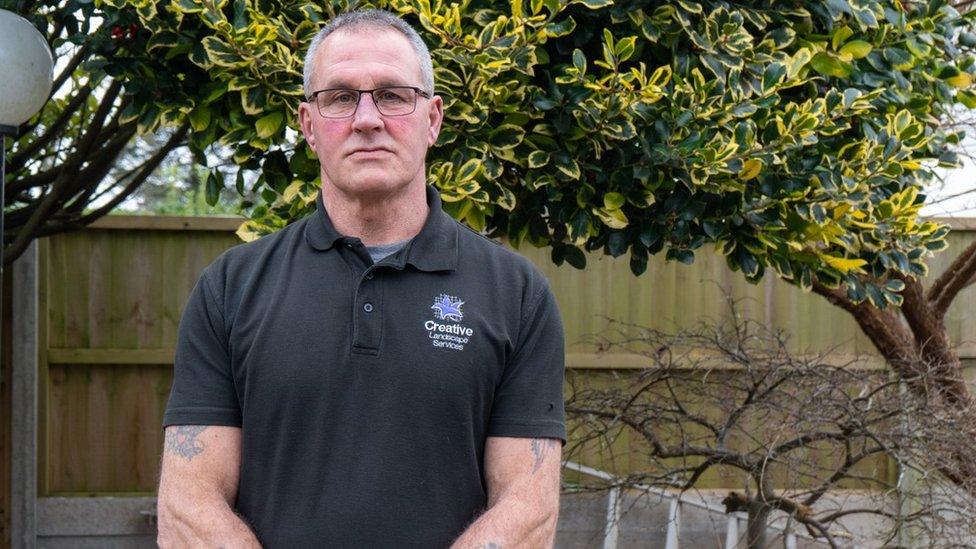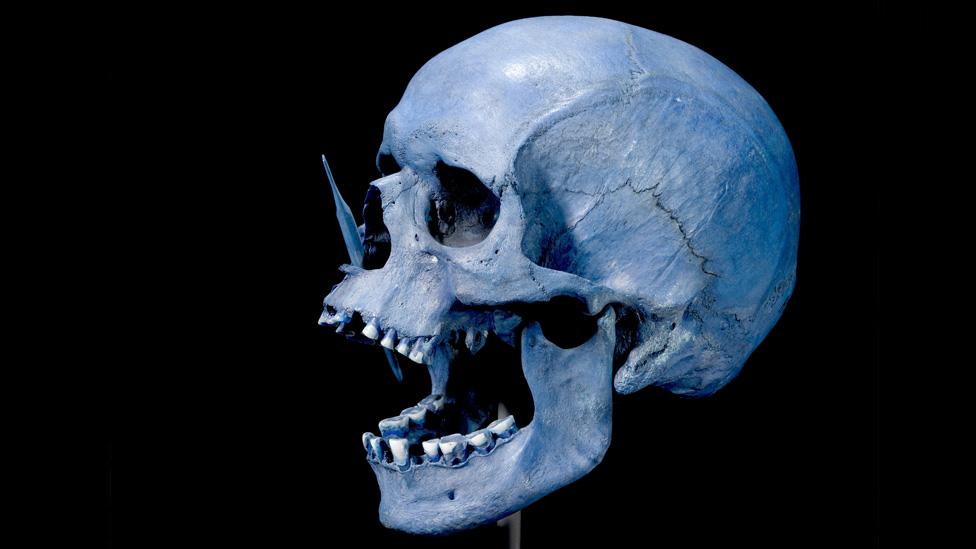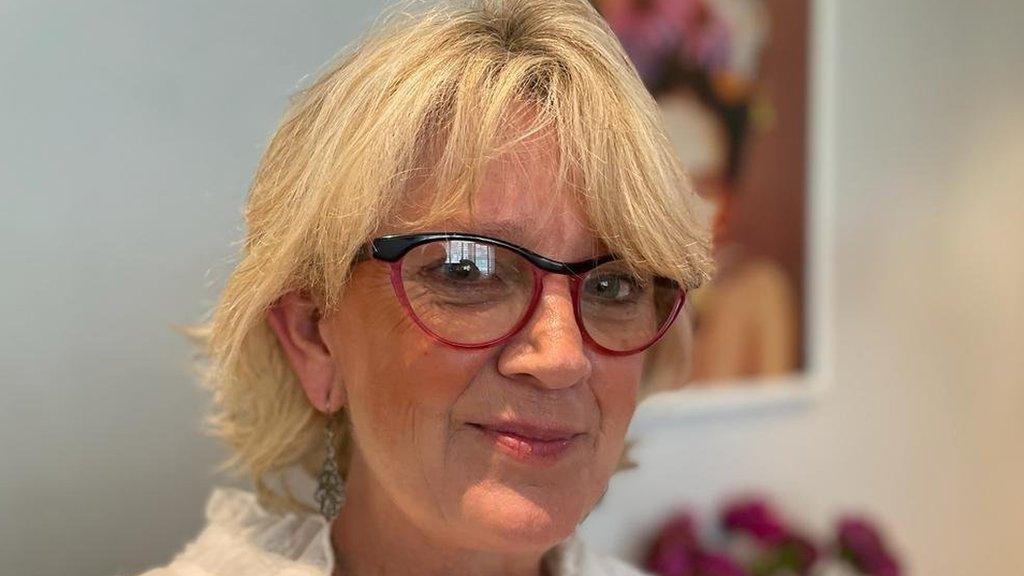Multiple sclerosis: Southampton participant's hopes for drugs trial
- Published

Frank Bailey was diagnosed with multiple sclerosis eight years ago
A man living with multiple sclerosis (MS) has said new drugs trial could "help future generations".
University Hospital Southampton (UHS) is helping test the use of drugs already used to treat other conditions.
Consultant Ian Galea said the trial could "maximize the probability" of finding a treatment for progressive forms of MS.
Trial participant Frank Bailey, 57, said the neurological condition had "massively affected" his life.
MS is a disease where the body's own immune cells attack the brain and spinal cord, leading to symptoms like muscle stiffness and problems walking and talking.
There are more than 130,000 people living with MS in the UK.
Those with progressive forms of the condition experience symptoms gradually worsening, with few treatment options available to them.
The Optimal Clinical Trials Platform for Multiple Sclerosis (Octopus) project, funded by the MS Society, is testing several drugs simultaneously at four regional hubs across the UK.
More than 120 people will take part in the trial in Southampton to see if the drugs also work to slow down or reverse MS progression.
The drugs being tested initially are metformin - commonly used to treat a type of diabetes - and a version of alpha-lipoic acid, a food supplement that acts as an antioxidant.
Both have shown promise in treating the nerve condition neuropathy.
'Driven forward'
Mr Bailey, a landscaper from Chichester, West Sussex, was diagnosed with MS eight years ago and is taking part in the trial.
He has been able to continue working since being diagnosed but there are currently no further treatments to prevent his progressive type of MS from getting worse.
"It's frustrating and has massively affected my way of life," he said.
"I have to find other ways of doing things, but for now I'm still doing the job I love doing and hope to continue doing that for as long as I can.
"I'll be overjoyed if the treatment I receive works and stops my condition from getting worse, but my main reason for joining the trial was to help future generations.
"MS needs to be driven forward and put in the limelight more - especially my type, progressive MS."
The design of the trial means it works up to three times faster than traditional trials because of the ability to test multiple drugs at the same time, dropping those that are not successful and adding in new ones based on emerging results.
Prof Galea said: "Octopus is a landmark trial that is designed to maximize the probability of finding a treatment for progressive forms of MS in the shortest possible time.
"Southampton has a long-standing expertise in progressive MS studies and because progression of the disease is likely to have many influencing factors, we take a number of different approaches."

Follow BBC South on Facebook, external, X, external, or Instagram, external. Send your story ideas to south.newsonline@bbc.co.uk or via WhatsApp on 0808 100 2240, external.
- Published10 January 2024

- Published5 September 2023

- Published4 April 2023
